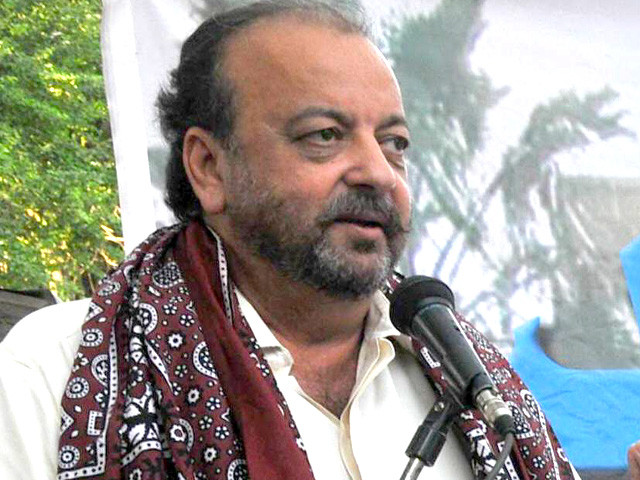Durrani resurrects LG elections debate, wants polls by March
PPP-MQM core committee to start meeting again on nazim vs commissioner system.

Clearly indicating towards coalition partner Muttahida Qaumi Movement (MQM), Durrani said that the government wanted to first take all stakeholders on board to draft legislation to present in parliament. After if it is approved, elections can be held within 90 days.
In a short question-and-answer session, the minister said that the government planned to restart the core committee meetings to discuss the matter. It was put off first due to the flood and then target killings.
“I am not against the nazim system,” he said. “I am against corruption and those who are corrupt should be held accountable.” While he didn’t need to state the obvious, he repeated that the government had a majority in the province and had it wanted to take a unilateral decision it could have passed the legislation in parliament “within five minutes”.
History of the LG dispute
The Pakistan Peoples Party (PPP) in Sindh wants to revert to the defunct commissionerate (mayor) system. This divides the city into five districts (South, East, West, Central and Malir) so power is not centralised with any one person. The MQM maintains that the recent Sindh Local Government Ordinance 2001 (SLGO), commonly known as the nazim system, should continue as it has “delivered”.
Soon after the SLGO lapsed earlier this year, a core committee of the two parties was formed to hash out a new, and perhaps amalgamated, system. But the stark difference in views has postponed any resolution thus far. The Pakistan Muslim League-Q and the Pakistan Muslim League-Functional (both who had nazims in Sindh) have submitted their recommendations.
Some people argue that the nazim system was unable to control law and order. But others are quick to point out that policing powers were never transferred to the nazim as they should have.
MQM’s response
Speaking to The Express Tribune, Sindh youth affairs minister Faisal Subzwari said, “We just want a local government as promised, one that is financially and administratively autonomous.” According to Subzwari, the MQM is “for elections as early as possible and is ready to put all its efforts and concerns on the table, however, the new legislation must be in line with the Constitution of Pakistan.” Cautioning that no system was perfect, he said that there was always a need to evolve but he believed that the last (nazim) system was more “honest”. “A metropolis needs a better system but it also needs to not be subservient to the Centre. We support that the city mayor be given more authority as per international standards according to which the sea port, airport and police comes under him. We are not looking for a weak system but one significantly more potent than before.”
Published in The Express Tribune, October 28th, 2010.



















COMMENTS
Comments are moderated and generally will be posted if they are on-topic and not abusive.
For more information, please see our Comments FAQ